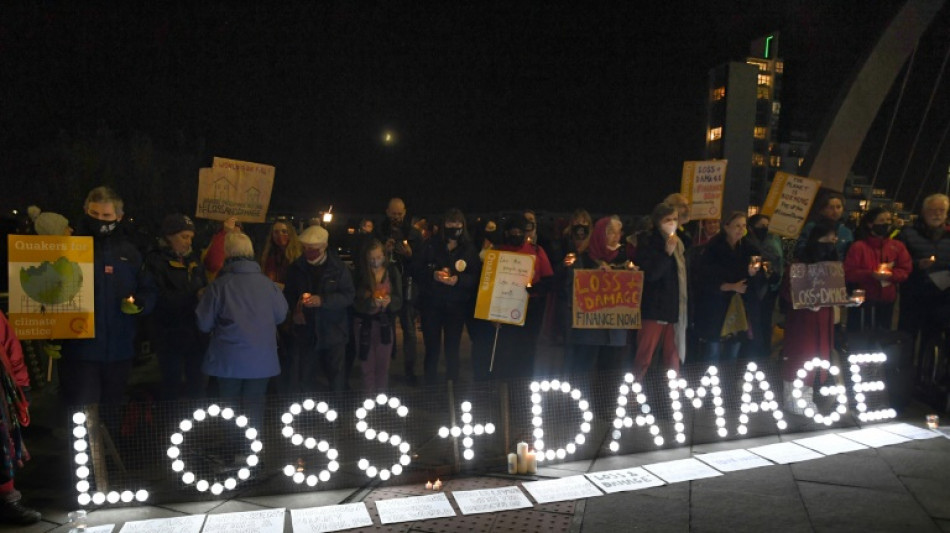
-
 Julio Iglesias, the Spanish crooner who won global audience
Julio Iglesias, the Spanish crooner who won global audience
-
'We can't make ends meet': civil servants protest in Ankara
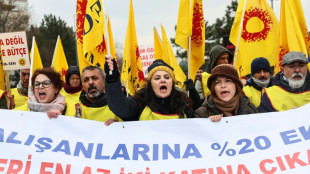
-
 UK prosecutors appeal Kneecap rapper terror charge dismissal
UK prosecutors appeal Kneecap rapper terror charge dismissal
-
UK police chief blames AI for error in evidence over Maccabi fan ban

-
 Oil prices extend gains on Iran unrest
Oil prices extend gains on Iran unrest
-
France bans 10 UK far-right activists over anti-migrant actions

-
 Every cent you take: Sting, ex-Police band mates in royalty battle
Every cent you take: Sting, ex-Police band mates in royalty battle
-
Thailand crane collapses onto train, killing 32
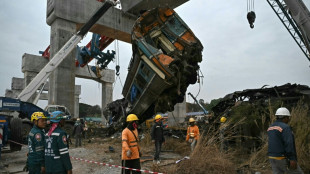
-
 Amateur stuns star-studded field to win 'One Point Slam' in Melbourne
Amateur stuns star-studded field to win 'One Point Slam' in Melbourne
-
Italian influencer Ferragni awaits verdict in Christmas cake fraud trial

-
 Louvre and other French museums fare hikes for non-European visitors
Louvre and other French museums fare hikes for non-European visitors
-
Japan's Takaichi to dissolve parliament for snap election

-
 Dutch court hears battle over Nexperia
Dutch court hears battle over Nexperia
-
World-first ice archive to guard secrets of melting glaciers

-
 Ted Huffman, the New Yorker aiming to update top French opera festival
Ted Huffman, the New Yorker aiming to update top French opera festival
-
Ofner celebrates early then loses in Australian Open qualifying

-
 Singer Julio Iglesias accused of 'human trafficking' by former staff
Singer Julio Iglesias accused of 'human trafficking' by former staff
-
Luxury retailer Saks Global files for bankruptcy

-
 Asian markets mostly up with politics bump for Tokyo
Asian markets mostly up with politics bump for Tokyo
-
Iran vows fast trials over protests after Trump threat

-
 China's trade surplus hit record $1.2 trillion in 2025
China's trade surplus hit record $1.2 trillion in 2025
-
Trail goes cold in UK abandoned babies mystery
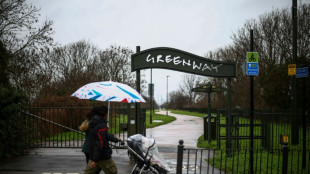
-
 Japan's Takaichi set to call February snap election: media
Japan's Takaichi set to call February snap election: media
-
Scientist wins 'Environment Nobel' for shedding light on hidden fungal networks

-
 From bricklayer to record-breaker: Brentford's Thiago eyes World Cup berth
From bricklayer to record-breaker: Brentford's Thiago eyes World Cup berth
-
Keys overcomes serve demons to win latest Australian Open warm-up

-
 As world burns, India's Amitav Ghosh writes for the future
As world burns, India's Amitav Ghosh writes for the future
-
Actor Kiefer Sutherland arrested for assaulting ride-share driver
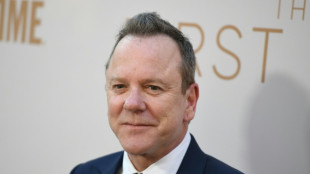
-
 Gilgeous-Alexander shines as Thunder halt Spurs losing streak
Gilgeous-Alexander shines as Thunder halt Spurs losing streak
-
West Bank Bedouin community driven out by Israeli settler violence
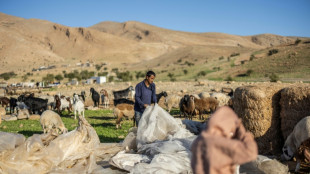
-
 Asian markets mixed, Tokyo up on election speculation
Asian markets mixed, Tokyo up on election speculation
-
US official says Venezuela freeing Americans in 'important step'

-
 2025 was third hottest year on record: EU, US experts
2025 was third hottest year on record: EU, US experts
-
Japan, South Korea leaders drum up viral moment with K-pop jam

-
 LA28 organizers promise 'affordable' Olympics tickets
LA28 organizers promise 'affordable' Olympics tickets
-
K-pop heartthrobs BTS to kick off world tour in April

-
 Danish foreign minister heads to White House for high-stakes Greenland talks
Danish foreign minister heads to White House for high-stakes Greenland talks
-
US allows Nvidia to send advanced AI chips to China with restrictions

-
 Sinner in way as Alcaraz targets career Grand Slam in Australia
Sinner in way as Alcaraz targets career Grand Slam in Australia
-
Rahm, Dechambeau, Smith snub PGA Tour offer to stay with LIV

-
 K-pop heartthrobs BTS to begin world tour from April
K-pop heartthrobs BTS to begin world tour from April
-
Boeing annual orders top Airbus for first time since 2018

-
 US to take three-quarter stake in Armenia corridor
US to take three-quarter stake in Armenia corridor
-
Semenyo an instant hit as Man City close on League Cup final

-
 Trump warns of 'very strong action' if Iran hangs protesters
Trump warns of 'very strong action' if Iran hangs protesters
-
Marseille put nine past sixth-tier Bayeux in French Cup

-
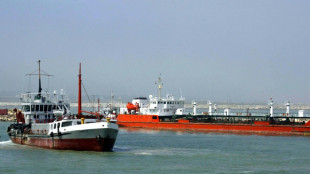 US stocks retreat from records as oil prices jump
US stocks retreat from records as oil prices jump
-
Dortmund outclass Bremen to tighten grip on second spot

-
 Shiffrin reasserts slalom domination ahead of Olympics with Flachau win
Shiffrin reasserts slalom domination ahead of Olympics with Flachau win
-
Fear vies with sorrow at funeral for Venezuelan political prisoner


Joy at 'historic' climate damages deal
Vulnerable nations least responsible for planet-heating emissions have been battling for three decades for wealthy polluters to cough up the cash for climate damages.
Their final push took barely two weeks.
The "loss and damage" inflicted by climate-induced disasters was not even officially up for discussion when UN talks in Egypt began.
But a concerted effort among developing countries to make it the defining issue of the conference melted the resistance of wealthy polluters long fearful of open-ended liability, and gathered unstoppable momentum as the talks progressed.
In the end a decision to create a loss and damage fund was the first item confirmed on Sunday morning after fraught negotiations went overnight with nations clashing over a range of issues around curbing planet-heating emissions.
"At the beginning of these talks loss and damage was not even on the agenda and now we are making history," said Mohamed Adow, executive director of Power Shift Africa.
"It just shows that this UN process can achieve results, and that the world can recognise the plight of the vulnerable must not be treated as a political football."
Loss and damage covers a broad sweep of climate impacts, from bridges and homes washed away in flash flooding, to the threatened disappearance of cultures and whole island nations to the creeping rise of sea levels.
Observers say that the failure of rich polluters both to curb emissions and to meet their promise of funding to help countries boost climate resilience means that losses and damages are inevitably growing as the planet warms.
Event attribution science now makes it possible to measure how much global warming increases the likelihood or intensity of an individual cyclone, heat wave, drought or heavy rain event.
This year, an onslaught of climate-induced disasters -- from catastrophic floods in Pakistan to severe drought threatening famine in Somalia -- battered countries already struggling with the economic effects of the Covid-19 pandemic and soaring food and energy costs.
"Everyone also now realises that things have gone way beyond our control," said Harjeet Singh, head of global political strategy at Climate Action Network International.
- Who pays? -
The agreement was a high-wire balancing act, over seemingly unbridgeable differences.
On the one hand the G77 and China bloc of 134 developing countries called for the immediate creation of a fund at COP27, with operational details to be agreed later.
Richer nations like the United States and European Union accepted that countries in the crosshairs of climate-driven disasters need money, but favoured a "mosaic" of funding arrangements.
They also wanted money to be focused on the most climate-vulnerable countries and for there to be a broader set of donors.
That is code for countries including China and Saudi Arabia that have become wealthier since they were listed as developing nations in 1992.
After last minute tussles over wording, the final loss and damage document decided to create a fund, as part of a broad array of funding arrangements for developing countries "that are particularly vulnerable to the adverse effects of climate change".
Other key points of contention were left ambiguous, or put into the remit of a new transitional committee that will be tasked with coming up with a plan for making the decisions a reality for the 2023 UN climate summit in Dubai.
A reference to expanding sources of funding, "is vague enough to pass", said Ines Benomar, researcher at think tank E3G.
But she said debates about whether China -- the world's biggest emitter -- among others should maintain its status as "developing" was likely to reemerge next year.
"The discussion is postponed, but now there is more attention to it," she said.
For his part, China's envoy Xie Zhenhua told reporters Saturday that the fund should be for all developing countries.
However, he added: "I hope that it could be provided to the fragile countries first."
- 'Empty bucket' -
Singh said other innovative sources of finance -- like levies on fossil fuel extraction or air passengers -- could raise "hundreds of billions of dollars".
Pledges for loss and damage so far are miniscule in comparison to the scale of the damages.
They include $50 million from Austria, $13 million from Denmark and $8 million from Scotland.
Some $200 million has also been pledged -- mainly from Germany -- to the "Global Shield" project, launched by G7 economies and climate vulnerable nations.
The World Bank has estimated the Pakistan floods alone caused $30 billion in damages and economic loss.
Depending on how deeply the world slashes carbon pollution, loss and damage from climate change could cost developing countries $290 to 580 billion a year by 2030, reaching $1 trillion to 1.8 trillion in 2050, according to 2018 research.
Adow said that a loss and damage fund was just the first step.
"What we have is an empty bucket," he said.
"Now we need to fill it so that support can flow to the most impacted people who are suffering right now at the hands of the climate crisis."
W.Mansour--SF-PST




